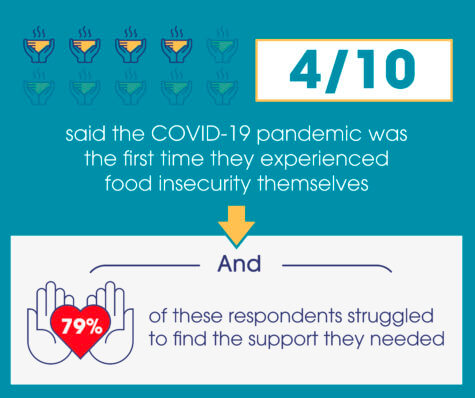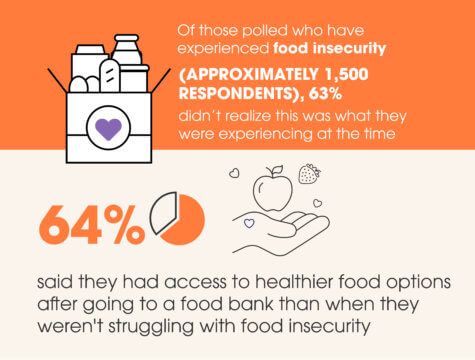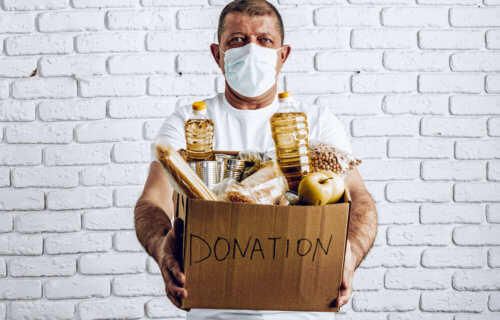NEW YORK — The global financial collapse of 2020 has put countless families in a desperate position. While millions are struggling to pay for food, others are seeing an opportunity to help their fellow man. A survey finds six in 10 Americans say the COVID-19 pandemic has inspired them to give back to their communities.
The survey asked 2,000 Americans about their experiences in 2020, including how they contribute to their communities and the impact COVID-19 has had on these habits. Commissioned by Two Good Yogurt and their One Cup, Less Hunger program, the survey reveals that nearly seven in 10 of respondents are more aware of the needs of those struggling in their communities because of the pandemic.
Another 63 percent of the poll say the pandemic has been a wake-up call for them to find ways to give back to their community. The survey also set out to analyze the experiences of those polled in relation to food insecurity specifically. The study finds four in 10 experienced this issue for the first time themselves due to COVID-19.
Food insecurity in the age of a pandemic

Due to the uncertainty facing the country and many Americans at the beginning of the health crisis, 79 percent of respondents report they struggled to find the support they needed when faced with food insecurity this year. A further six in 10 respondents agree the expiration of federal stimulus programs made it more difficult to provide food for their family.
Of those respondents experiencing food insecurity (nearly 1,500 people), 63 percent share that they didn’t even realize they were experiencing food insecurity at the time. Half of respondents say they’ve experienced not having enough money to purchase food, while 37 percent have skipped meals so their children could eat. Another 35 percent admit they didn’t know where their next meal was coming from. All of those experiences are common signs of food insecurity.
In fact, the OnePoll survey shows the average respondent struggles to provide food for themselves or their families four times a year. Nearly six in 10 Americans want to volunteer with an organization that fights food insecurity, however, there seems to be some confusion about the extent of food insecurity in the United States.
Sixty-three percent of respondents incorrectly believe that the terms hunger and food insecurity can be used interchangeably. One in two people are not aware that 10.5 percent of U.S. households experienced food insecurity in 2019, according to the United States Department of Agriculture.

“Two Good supported this survey to drive conversation around the increasingly urgent issue of food insecurity in our country,” says Surbhi Martin, Vice President of Marketing at Danone North America, in a statement. “We found that for nearly 40% of respondents, COVID-19 contributed to their first experience with food insecurity. The majority of those surveyed (63%) also did not realize they were food insecure – indicating a clear discrepancy in our collective understanding of what constitutes food insecurity in the first place.”
Sharing is caring
Seven in 10 people who have experienced food insecurity say that giving back to other members of their communities struggling with this hardship is a top priority of theirs. Respondents who have not been personally impacted still want to learn more about these issues. However, 58 percent admit they don’t know where to go to educate themselves further.
“In addition to launching our One Cup, Less Hunger program in-stores this fall and dedicating our social channels to amplifying the voices of our food rescue partners at City Harvest and We Don’t Waste this holiday season, sharing these new findings is another way Two Good is hoping to lend a hand to those who need it most,” Martin adds.
